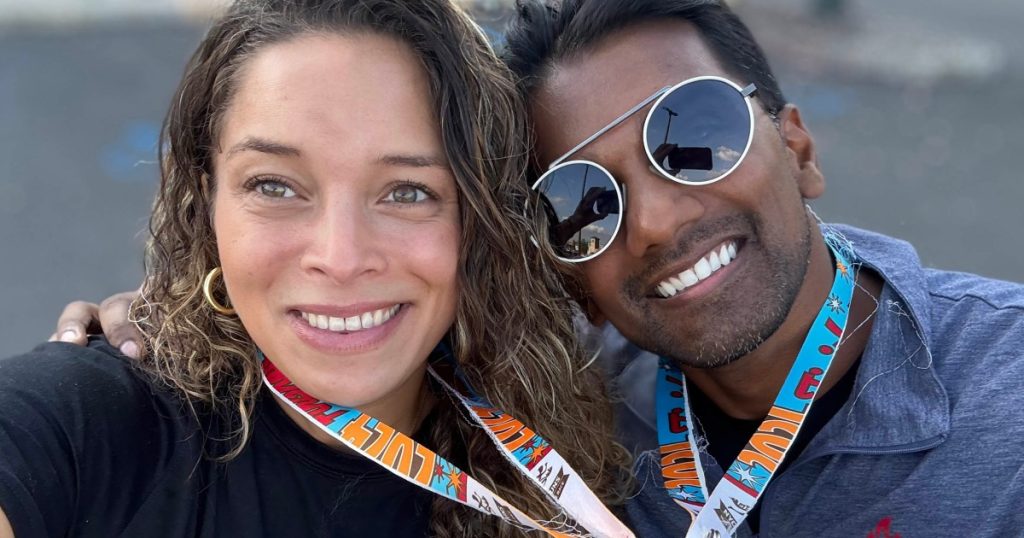Chrystal Rinehold, a high school basketball coach and mother of three, was participating in the Jersey City Half-Marathon when she collapsed near the 7-mile mark due to a cardiac episode. Luckily, Dr. Shane Naidoo, an emergency medicine physician at JFK University Medical Center and fellow runner, was there to provide immediate care before emergency responders arrived. Naidoo’s quick actions potentially prevented Rinehold from entering cardiac arrest, and she credits his compassion and energy for helping her fight through the scary experience.
Rinehold, an avid long-distance runner, had been feeling fine until she began experiencing dizziness and shortness of breath during the race. Despite being familiar with feeling light-headed while running, she knew something was wrong when she felt like her body was shutting down and her heart was stopping. She pushed through the pain until she eventually collapsed due to unbearable chest pain. Naidoo’s timely intervention, feeding her energy gels and providing oxygen, helped stabilize her until the ambulance arrived.
Naidoo recognized the signs of paroxysmal supraventricular tachycardia, a fast heart rate caused by dehydration and fatigue, and suspected low blood sugar as well. He took charge of the situation, directing bystanders to call 911, find medical help, and support Rinehold as necessary. The doctor’s quick thinking played a crucial role in saving Rinehold’s life and potentially preventing the situation from escalating to cardiac arrest. Once she was stable, Naidoo continued the race after taking her to the hospital.
Even experienced athletes like Rinehold can experience cardiac episodes while exercising, often due to dehydration and pushing their bodies too hard. Naidoo emphasizes the importance of recognizing warning signs such as chest pain, shortness of breath, heart palpitations, and other symptoms that indicate you should slow down or seek medical attention. Hydration is also key during workouts to prevent dehydration-related complications. Rinehold’s tests showed severe dehydration as the likely cause of her episode, and she is now back home with her family, grateful for Naidoo’s timely intervention.
The experience has highlighted the importance of being aware of your body’s signals during exercise, especially in high-intensity situations like marathons. By recognizing warning signs and taking necessary precautions, athletes can avoid potentially life-threatening situations like Rinehold’s. Naidoo’s expertise and quick actions serve as a reminder of the critical role healthcare professionals can play in ensuring the safety and well-being of athletes during events. Rinehold’s recovery serves as a testament to the power of timely intervention and the importance of prioritizing health and safety in sports and fitness pursuits.













